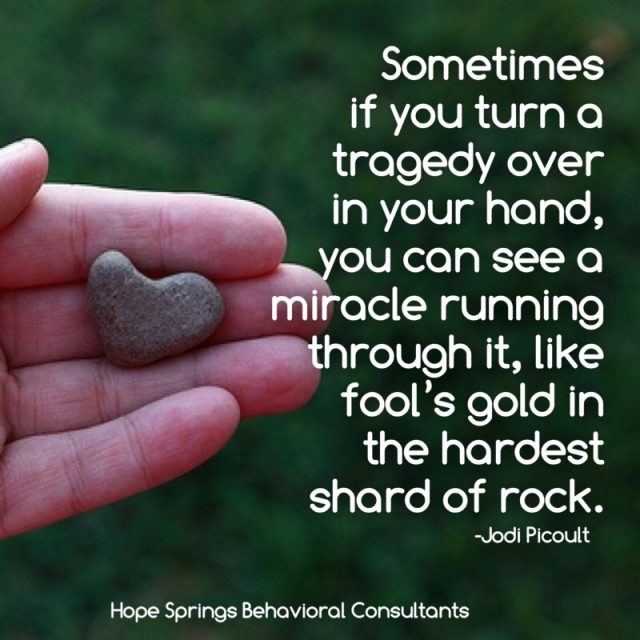Most people go through something terribly hard in their lives
A study from the Journal of Consulting and Clinical Psychology found that out of over 1000 people in the US, almost 70% had experienced some type of traumatic experience. These events can include things like traumatic death, sexual assault, and domestic assault.

Rates are similar in children and adolescents. In fact, more than 68% of children and adolescents have experienced a potentially traumatic event by the age of 16. As a result, social problems, school problems, emotional difficulties, and physical problems—occur in more than 20% of people who had been traumatized. In those who had experienced more than one traumatic event, the rate was nearly 50%. *
What these types of studies tell us is that trauma is not rare, but rather, a common experience for many people. Also, many people experience some reaction to the traumatic experience that they have endured. Typical reactions can include worry, sleeplessness, feeling jumpy, feeling on edge, difficulty trusting others, social withdrawal, irritability, substance abuse, depression, and even self-harming thoughts and behaviors. Oftentimes these symptoms can create difficulties for people in their relationships, work, and personal lives.
If you have been through something traumatic, or are going through significant hardship, here are some self-care thoughts to consider:
You are not crazy
Your brain and body are wired to help you survive life-threatening situations. Sometimes, the human body will become “stuck” on protecting us, causing us to be overly anxious and vigilant. If this happens to you, it is not your body doing something wrong, it is your body trying to protect you. But, it is also a time to seek treatment so you can decrease your distress.
More than 68% of people have experienced at least one potentially traumatic event by the age of 16.
You are not alone
As you can see by the statistics in the first part of this article, many people experience trauma. However, it is rare for people to talk about them. Sometimes it feels too difficult, and sometimes people are afraid of being judged. But, you can rest assured that more people than you know are going through the exact same thing.
You’ve overcome challenges in the past
You are still here. You have the strength and problem-solving skills to continue. All your past difficulties have helped you become strong. You will also gain strength from this situation. Although you may not feel strong, you will may need to remind yourself that you are. A common metaphor that I often use with patient in this situation is human bone. Every time we run or jump, tiny fractures occur along our leg bones. Over time, after these fractures heal, our bones are stronger than before. Our lives are like these bones. They more endure stress, the stronger and more resilient we become.

There is something valuable to learn from your situation
When you are ready, you will find that you have learned something from what you have had to endure. You may learn better how to care for yourself, or how grateful you are for certain people in your life. You may learn that you have the strength to do or face other things. You may learn more about how to have healthier relationships.
Self-care is crucial to your health
Being kind to yourself, like through self-compassion, is the best way to promote physical and psychological healing. You may also benefit from a healthy diet, good sleep, mediation, time with animals, time outside, or time in artistic pursuits. Take good care of your body, particularly now as it is healing. Remember to be thankful for your body and all that it does for you. Take care of your thoughts and emotions too: journal, talk to people, see a therapist, write poetry or music. Feed your soul with goodness.
There is always something to be thankful for
Even just a few minutes spent appreciating 3-5 things about your day can improve your mood, your energy, and your urge to use better self-care. Be positive about what you have, and you’ll attract more positive things into your life in response. For example of gratitude in action, you can click on this link to learn more.
*Copeland, W.E., Keeler, G., Angold, A., Costello, E.J. (2007). Traumatic events and posttraumatic stress in childhood. Archives of General Psychiatry, 64 (5): 577-584.
![]()
